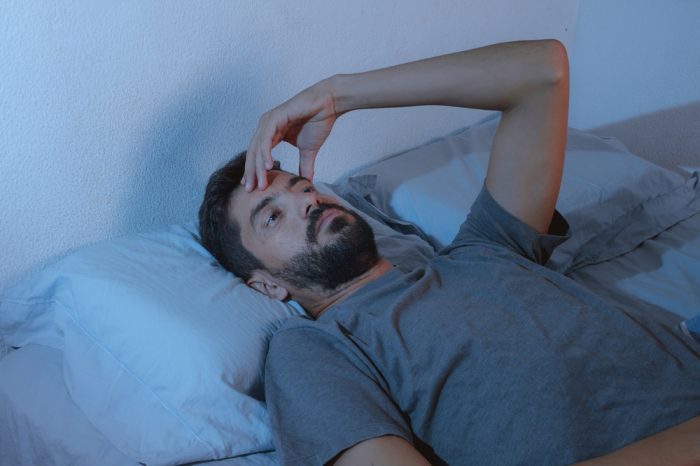Survey: patients report cannabis is working for pain and sleep.
Numerous studies are indicating that cannabis may offer an option for pain recovery and sleep. Anecdotally, people have long spoken of cannabis as a substitution for certain pharmaceuticals, especially as that applies to sleep and pain. But, does research back this up?
Is Cannabis a Good Sleep Aid for Chronic Pain Patients?
A recent study surveyed 1000 people consuming cannabis. The researchers asked why participants consumed cannabis and probed about the subjective results. Of these participants, sixty-five per cent consumed cannabis for pain relief. Meanwhile, seventy-four per cent used cannabis for sleep problems.
The results were incredible! A whopping eighty per cent trying cannabis for pain relief stated that the cannabis was ‘very’ or ‘extremely’ helpful in reducing pain. Importantly, many participants were permanently switching to cannabis – eighty-two per cent had previously used over-the-counter pain medications and eighty-eight per cent previously used opioid analgesics.
For those consuming cannabis for sleep, eighty-four per cent said that cannabis was ‘very’ or ‘extremely’ helpful in aiding sleep. Of these, eighty-seven percent switched from over-the-counter sleep aids and eighty-three percent using prescription sleep aids reduced pharmaceutical use or switched to cannabis entirely.

More Evidence That Cannabis May Help with Pain
But, the evidence that cannabis can substitute and reduce opioid-based pain recovery doesn’t stop there.
Another survey study asked patients with chronic pain whether cannabis had affected their opioid use. The researchers used an online questionnaire that reached 244 chronic pain patients who also consumed cannabis. They found that these patients decreased their opioid use by sixty-four per cent after starting cannabis. These patients also experienced reduced medication side effects, and reported improved quality of life by forty-five per cent.
The researchers concluded that, “chronic pain patients are essentially substituting medical cannabis for opioids and other medications for chronic pain treatment, and finding the benefit and side effect profile of cannabis to be greater than these other classes of medications”.
A Good Night Sleep is Critical to Healing
Finding ways to improve pain recovery and improve sleep is incredibly important as dysfunction in these can be debilitating. As well, pharmaceutical pain killers and sleeping pills can be addictive and even fatal.
Deaths caused by prescription opioids, in particular, have become a reality for many Americans. Around twenty to twenty-nine per cent of patients who are prescribed opioids for alleviating chronic pain end up abusing these drugs. The CDC reported that five times more people died from prescription opioid overdose in 2017 than in 1999.
Sadly, the outlook isn’t much better for those taking prescription sleeping pills. One study found that six to ten per cent of American adults are prescribed a sleeping drug. Taking these pills increases an individual’s chance of fatality by threefold, even when they take less than eighteen pills a year.
Can Cannabis Reduce The Need For Opioids?
We know that cannabis shows a lot of potential in its ability to get patients off certain prescription drugs. But how does it do this?
Research reveals that cannabis might be able to induce a range of similar effects on the body, including pain relief and aiding sleep. If cannabis is able to provide the same result as prescription medications, cannabis may reduce the need for pharmaceuticals.

Cannabis as a Pain Reliever
Cannabis contains active cannabinoids, like CBD and THC, that act on receptors and other pathways to induce a range of effects. CB1 and CB2 are G-protein coupled cannabinoid receptors to which THC and other cannabinoids bind. One study showed that activators of CB1 and CB2 induced a pain relief effect comparable to morphine in a tumor pain model.
CB1 receptors are also found in areas of the brain that regulate perception. When THC binds to CB1, it hyperpolarizes the pre-synaptic terminal. This closes calcium channels and holds back neurotransmitters at their synapses. This can then modulate opioid and serotonin release, reducing pain.
CBD is another cannabinoid that might play an important role in reducing pain. CBD modulates receptor pathways and other non-cannabinoid receptors. It may improve pain relief by targeting the glycine receptor ? GlyR, by enhancing ? GlyR CBD which then induces glycinergic cannabinoid-induced suppression of chronic pain.
Cannabis as a Sleep Aid
Patients have long hailed cannabis for its ability to induce sleep. Now, there’s research to back that up.
One animal study showed that the light/dark cycle modulates the CB1 receptor. This suggests that CB1 and its activators, like THC, might play a prominent role in the wake/sleep cycle.
Researchers have found that the endocannabinoid system induces the production of oleamide, which is a fatty acid that stops the blocking of the GABA receptor through gap junction-mediated cell to cell communication modulation. GABA is a neurotransmitter that has been found to enhance the production of melanin. Melanin is important for sleep and circadian rhythms. So cannabis may, therefore, ensure that the body produces melanin.
This research on cannabis’ potential as a pain-killer and sleep aid is ongoing but positive anecdotal reports pile up. There’s little doubt the plant has great promise in pain recovery and as a sleep aid. Future research will reveal dosage and chemovar recommendations.






Chiggg
NEED REFERENCES.
Jennifer Grant
All of the reference links are embedded. Look for green text.